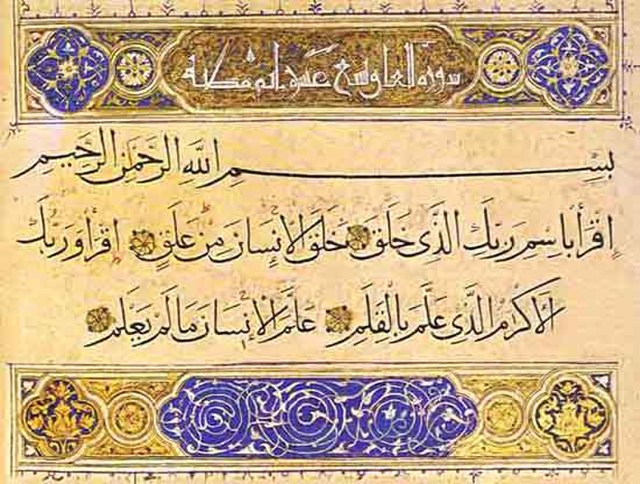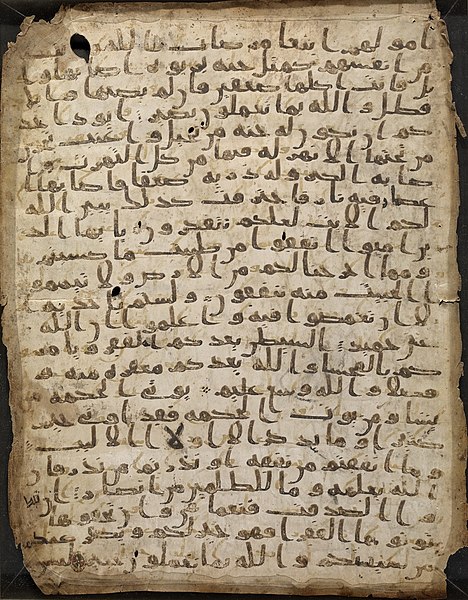Sulaimān ibn Dāwūd was, according to the Quran, a nabī and ruler of the Israelites. Generally, Islamic tradition holds that he was the third ruler of the Israelites and a wise one.
Illustrated frontispiece of Solomon enthroned, depicted on a manuscript from the Safavid era (c. 1539)
The Queen of Sheba
Ruins of the Temple of Awwam at Ma'rib, the former capital of Saba' in what is now Yemen
Throne of Sulaiman in the Masjid Al-Aqsa (Temple Mount), Old City of Jerusalem
The Quran, also romanized Qur'an or Koran, is the central religious text of Islam, believed by Muslims to be a revelation from God. It is organized in 114 chapters which consist of individual verses. Besides its religious significance, it is widely regarded as the finest work in Arabic literature, and has significantly influenced the Arabic language.
Two folios of the Birmingham Quran manuscript, an early manuscript written in Hijazi script likely dated within Muhammad's lifetime between c. 568–645
Traditionally believed to be Muhammad's first revelation, Surah Al-Alaq, later placed 96th in the Qur'anic regulations, in current writing style
Quran − in Mashhad, Iran − said to be written by Ali
A page from the Stanford '07 binary manuscript contains verses 265-271 of Surah Al-Baqara; the double layer reveals additions to the original text and differences with today's Quran








